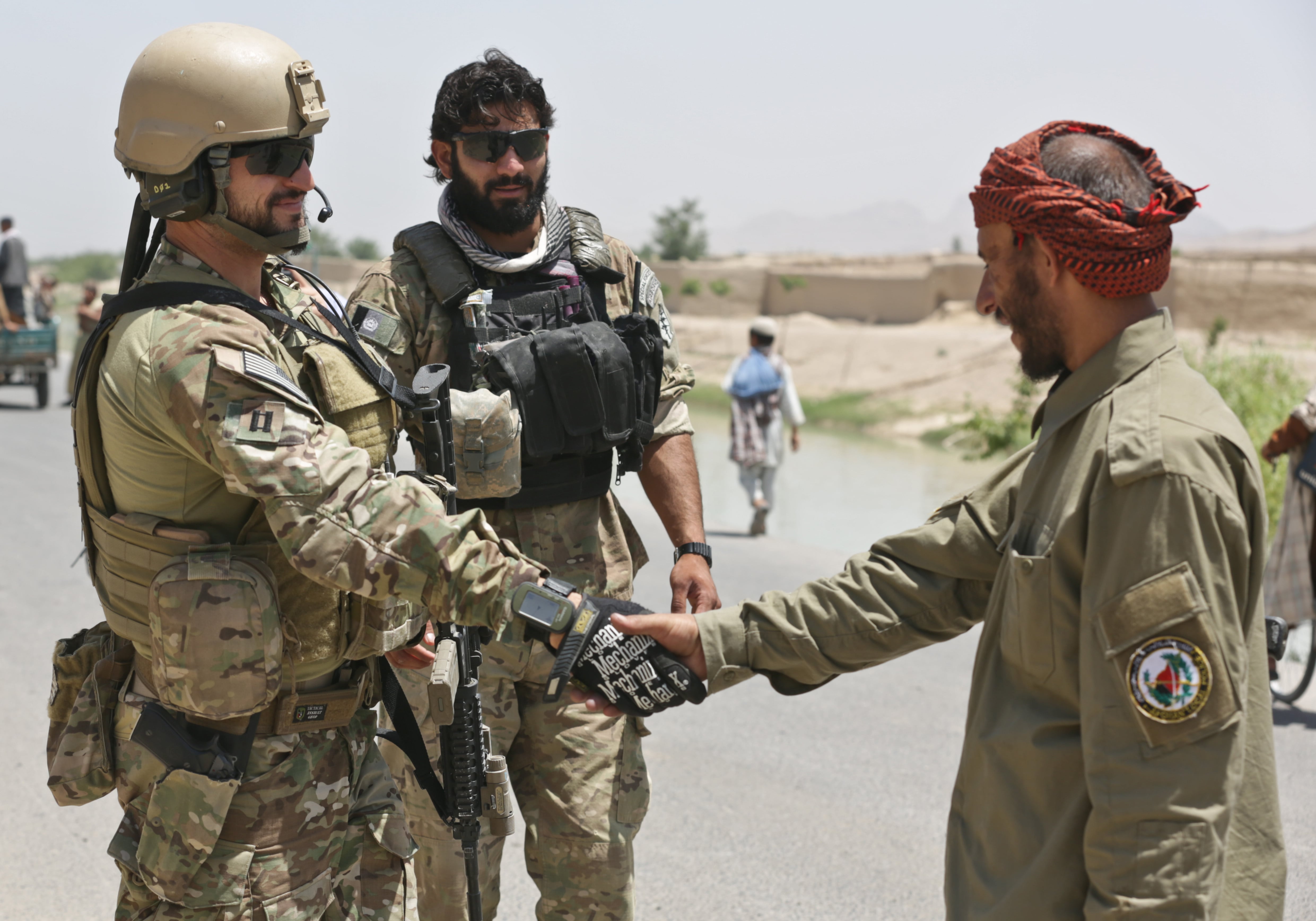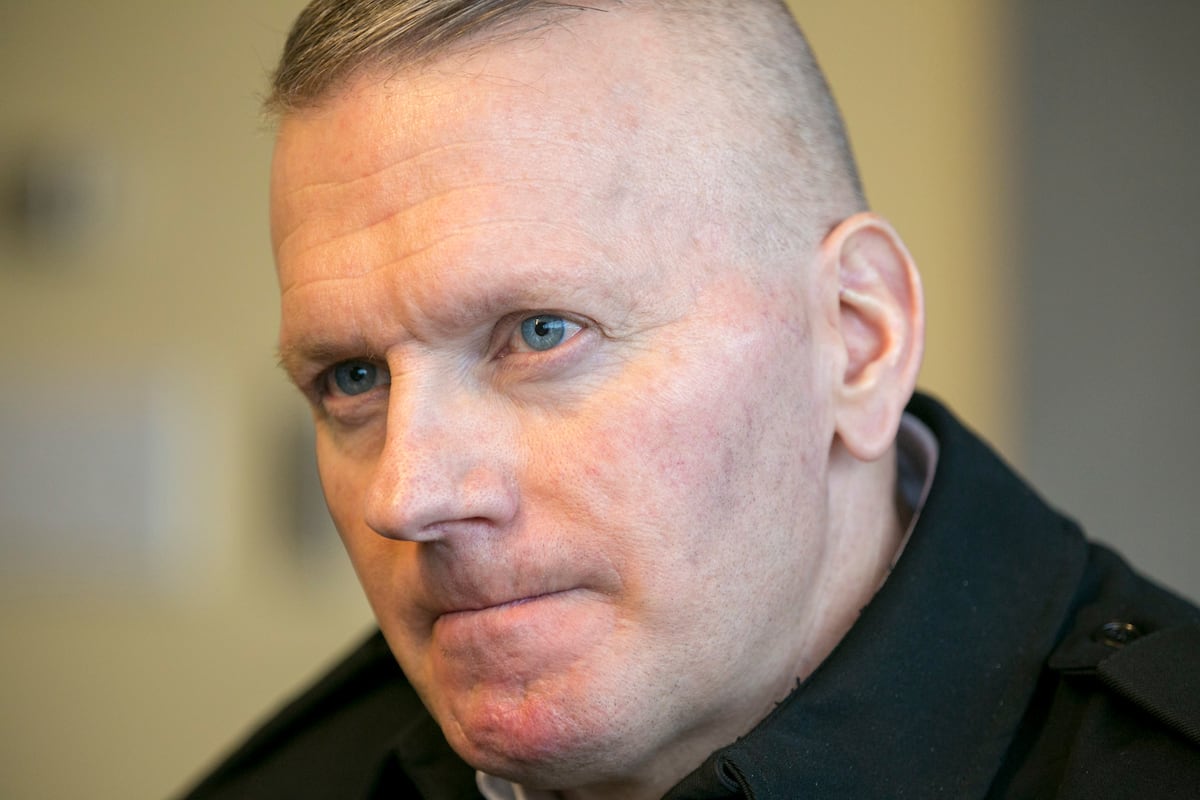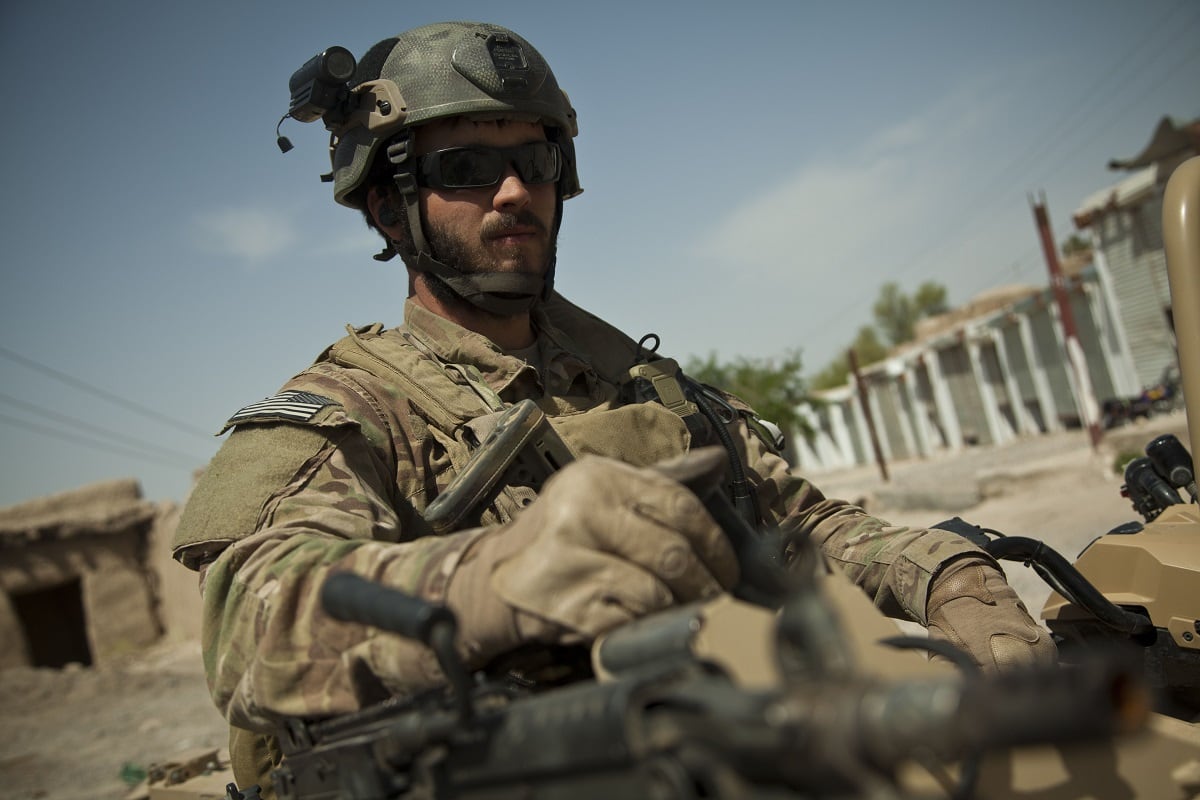The hipster beard of the 2010s is still going strong, as is the groundswell from service members who want to be able to wear one while in uniform.
In a bid to be more inclusive, the Army in 2017 authorized beards for Sikh soldiers as part of an ongoing study into how facial hair and head coverings affect the integrity of gas masks designed to protect troops in chemical attacks.
But if it were up to the military’s most senior enlisted adviser, the issue would be off the table.
“Sometimes, obviously, there is a right time and a right place for relaxed grooming standards,” Command Sgt. Maj. John Troxell, the senior enlisted adviser to the chairman of the Joint Chiefs, told Military Times on Tuesday.
During the Global War on Terror, for instance, special operators have been authorized to grow beards to better blend in with local populations in Middle Eastern countries.
“But if you ask me my opinion, … in some cases, people look at beards like it’s a tangible gimmick,” Troxell said. “ ‘Okay, I feel good about myself because I have a beard.’ Or because it’s part of pop culture, having this beard.”
RELATED

But the military is about standards and discipline, he said, and its members “are the ethical standard-bearers, globally, for everything that is right about our country.”
Relaxing standards takes away from that, he added.
“Now all of my retired buddies and special operator buddies will probably pepper my rib cage for saying something like that,” he said.

On the other side, Sergeant Major of the Army Dan Dailey has said that he would consider supporting the authorization of beards, as long as they fell into a prescribed grooming standard and could be revoked in an environment with a high-risk of chemical attack.
“I’m not opposed to having a beard,” Dailey told Army Times in 2017. “I’ve socialized this with several people, including [Army Chief of Staff Gen. Mark Milley] — how do we do that to maintain standards? I think that we have to continue that study.”
RELATED

Troxell, however, suggested finding other ways to express one’s self.
“In some cases, I think somebody wants to wear a beard because they’ll feel good about themselves if they had a beard,” he said. “I think you need to look internally — as a soldier, sailor, airman, Marine and Coast Guardsman — and find that inner self to feel good about yourself.”
Personally, he added, he is a much bigger fan of tattoos.
“I will tell you, some of our most elite war fighters — and I’ve seen this over 16 years of combat — have sleeve tattoos. And I don’t think that’s a bad thing,’ he said.
Troxell himself has five tattoos, he said, but they are not visible when he’s in his dress uniform.
“But I think if they are going to represent us in a uniform, in this uniform, they ought to look like professional service members,” he said of face, neck and hand tattoos. “I think that detracts, as I think facial hair does.”
Meghann Myers is the Pentagon bureau chief at Military Times. She covers operations, policy, personnel, leadership and other issues affecting service members.



